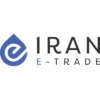Export Bitumen Specifications: Requirements & Standards
Export bitumen specifications include high purity, appropriate penetration grade, standard viscosity, thermal resistance, secure packaging, and compatibility with the climatic conditions of the destination. These traits must ensure that bitumen’s quality does not deteriorate during Bitumen Transportation Methods, storage, or its final use. Furthermore, strict compliance with export bitumen standards, such as the Iranian National Standard, ASTM, or EN, is essential for successful entry into international markets.
Therefore, in this article from Iran ETrade Blog, a specialized reference for bitumen pricing, we will provide you with a comprehensive review of these features and the standards required for exporting bitumen.
Export bitumen specifications: The Most Important Requirements For Export Bitumen
Export bitumen traits include high purity, standard penetration grade, good fluidity, secure packaging, and full compliance with international standards.
Even at the height of sanctions, bitumen remains one of Iran’s most popular export products. Therefore, among the competitors, attention to export bitumen specifications plays a decisive role in the success of trading this product. In this section, we will examine the most important traits of export bitumen:
1. Quality of Export Bitumen
When selecting the best bitumen for export, experts should carefully evaluate its viscosity, softening point, penetration, and heat resistance.
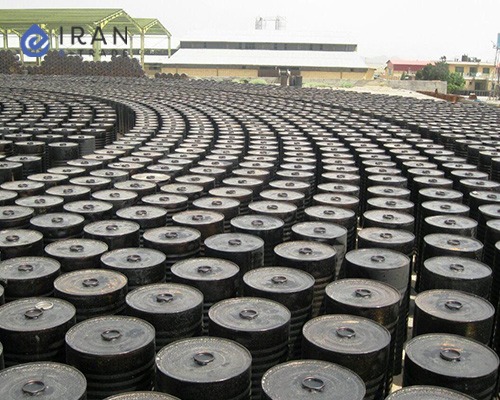
2. Purity Grade
The purity of bitumen directly affects its performance in construction projects. Therefore, one of the export bitumen traits is that the content of impurities such as ash, water, paraffin, or volatile materials is minimized.
3. Proper Packaging of Export Bitumen
The packaging of bitumen reflects its quality and must prevent leakage, contamination, and damage during transportation. Therefore, choosing the appropriate packaging type requires careful evaluation and is determined based on the export destination, transportation conditions, and the type of bitumen.
4. Customs Declaration
One of the essential steps to meet export bitumen specifications is the customs declaration. Accurate information, such as technical specifications, quantity, packaging type, country of destination, and product value, ensures bitumen’s smooth passage through customs and the issuance of export permits.
Different Types of Export Bitumen Specifications
Export bitumen products are classified by their usage and climatic conditions. Therefore, they include penetration bitumen, emulsion, cutback, and various grades, all of which ensure traits such as durability, fluidity, and compliance with standards.
Understanding the different types of bitumen and aligning export bitumen traits with global market needs is highly important. Therefore, we will briefly introduce the most commonly used types of export bitumen:
- Ordinary bitumen: The best bitumen for export is penetration or hard bitumen, as it is both cost-effective and widely used in road construction and waterproofing.
- Cutback bitumen: This bitumen is suitable for cold regions or projects that require rapid penetration due to its initial fluidity.
- Fluid bitumen: In export bitumen traits, the fluid or liquid type is very important and is extensively used in fast-execution projects, such as the initial layers of asphalt.
- Emulsion bitumen: This type of bitumen is mainly applied in environmentally friendly projects and in humid areas.
- Bitumen 70/60: Considering export bitumen traits, 70/60 bitumen with medium penetration has wide usage in temperate regions, urban projects, and general road and asphalt structures.
- Bitumen 90/60: According to export bitumen standards, 90/60 bitumen, with its high viscosity, is applicable in tropical regions and for strengthening asphalt surfaces.
- Bitumen 100/85: The quality of 100/85 bitumen, with high penetration, makes it suitable for cold climates and projects requiring greater flexibility.
- Bitumen 75/50: Based on export bitumen traits, 75/50 bitumen falls into the hard bitumen category. Its high resistance to temperature changes makes it ideal for heavy infrastructure use.
- Bitumen 100/80: With high fluidity and adequate resistance, 100/80 export bitumen is in high demand in Asian and African countries and serves as a cost-effective option for general road construction applications.
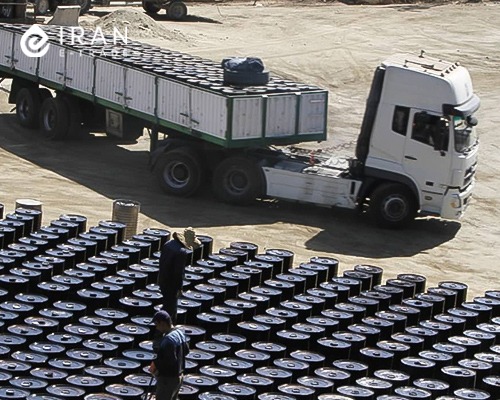
Required Permits For Export Bitumen
Although bitumen has a high demand, a successful trade requires a set of legal permits and documents. Therefore, specifications of export bitumen are fully met when official and international regulations are observed.
1. Commercial Card
Alongside other standards, the first and most essential permit is the commercial card, issued by the Chamber of Commerce, which verifies the legal identity of the exporter.
2. Company Registration Certificate
A company registration certificate demonstrates the formal nature of the exporter’s business and plays a key role in evaluating the quality of export bitumen and the credibility of international contracts.
3. Bitumen Standard Certificate
This certificate confirms the compliance of export bitumen specifications with domestic or international standards (such as ASTM, EN, ISIRI).
4. Proforma Invoice for Bitumen Purchase
Providing a proforma invoice is essential for setting the base price and starting the sales process. Therefore, this document serves as the foundation for purchasing the best bitumen for export.
5. Bitumen Sales Contract
The official contract between the seller and the foreign buyer includes specifications of export bitumen, price, packaging type, and payment terms, and it is mandatory for shipping and customs clearance.
6. Customs Clearance Permit
One of the most important export bitumen traits is full compliance with customs documents and obtaining a clearance permit, without which the goods cannot be released.
7. Transport Insurance Policy
To protect the shipment against potential risks during transportation, a valid insurance policy issued by insurance companies is essential and has particular importance in international trade.
Important Standards For Export Bitumen
Another important factor in evaluating export bitumen specifications is ensuring compliance with national and international standards. Bitumen standards define its physical and chemical properties and are established by international organisations such as ASTM and ISO.
Therefore, the most important bitumen standards include ASTM D 946 (penetration-based), ASTM D 2872 (viscosity-based), and AASHTO M 320 (performance-based).
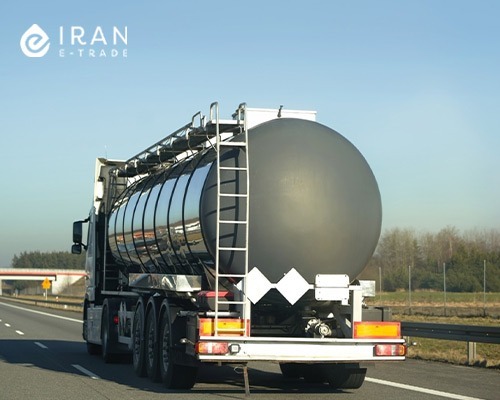
Iranian Standard For Export Bitumen
The most important export bitumen standards in Iran are:
Iranian National Standard No. 2950
This standard specifies the technical requirements for penetration grade bitumen (properties of bitumen and bituminous materials) and is equivalent to ASTM D946.
Iranian National Standard No. 12505
In line with specifications of export bitumen for road construction and compliance with ISA 12505-1, this standard evaluates the physical properties and performance of bitumen under varying environmental conditions.
Iranian National Standard No. 12506
For assessing export bitumen triats, this standard—similar to ASTM D 2397—addresses the specifications of emulsion bitumen (cationic and anionic).
Best Bitumen Grades For Export
One of the most important export bitumen specifications is selecting the appropriate grade (penetration level) based on the climatic conditions and intended application at the destination.
The most commonly used grades are 70/60, 100/85, 90/60, and 100/80 bitumen, which have common uses in road construction and civil engineering projects in various countries due to their thermal stability, suitable viscosity, and high adhesion.
Which Countries Does Iran Export Bitumen To?
Iran exports bitumen to European countries, Iraq, Afghanistan, and African nations, with specifications of export bitumen determined according to the industrial and climatic needs of each country.
Export bitumen traits in the global market are highly diverse, as different countries require various types of bitumen depending on their climate, infrastructure, and level of development. Therefore, the method and type of bitumen export to each country vary. As one of the main bitumen producers, Iran maintains active export markets both regionally and beyond.
Exporting Bitumen to European Countries
European countries typically require bitumen that meets international standards such as EN. Therefore, bitumen’s precise packaging, complete technical documentation, and high quality are essential in these markets.
Exporting Bitumen to Iraq
Iran is one of the main suppliers of bitumen to Iraq. Export bitumen for Iraq includes 70/60 and 100/85 grades, with standard packaging and cost-effective land transportation.
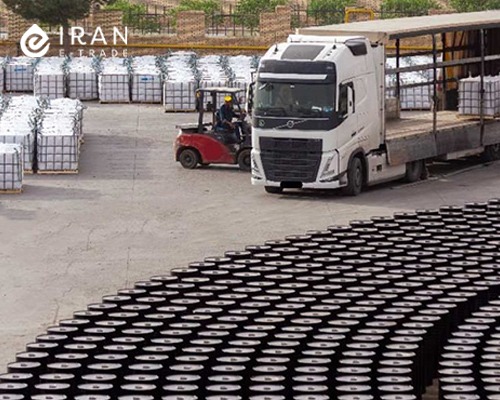
Exporting Bitumen to Neighbouring Countries
Countries such as Pakistan, Armenia, Turkmenistan, and Azerbaijan are regular buyers of Iran’s bitumen. Therefore, land access, geographical proximity, and competitive pricing are key factors that strengthen exports to these regions.
Exporting Bitumen to Afghanistan
Afghanistan, due to its extensive need for road development, is one of Iran’s main bitumen customers. In this market, export bitumen specifications must ensure, alongside reasonable pricing, durability and compatibility with Afghanistan’s mountainous and cold conditions.
Iran’s Ranking in Bitumen Exports
Iran is one of the largest bitumen producers in the Middle East and holds a prominent position among global bitumen exporters.
Important export bitumen traits of Iranian production include grade variety, high quality, competitive pricing, and easy access to regional markets, all of which play a significant role in strengthening the country’s position in international markets.
Frequently Asked Questions
In this section, we address the most common questions regarding specifications of export bitumen:
What Are The Specifications of Export Bitumen?
In general, export bitumen traits include a specific grade (such as 70/60 or 100/85), a suitable softening point, high purity, controlled viscosity, and standard packaging.
What Factors Make Bitumen Suitable For Export?
The main factors include compliance with specifications of export bitumen such as ASTM or EN standards, possession of technical certificates, consistent quality, high purity, and the ability for safe packaging and transportation.
Which Types of Export Bitumen Have The Most Uses?
Key export bitumen specifications include high durability, flexibility, and compatibility with diverse climatic conditions. Therefore, the bitumen types with the largest share in exports are 70/60, 90/60, and 100/85.
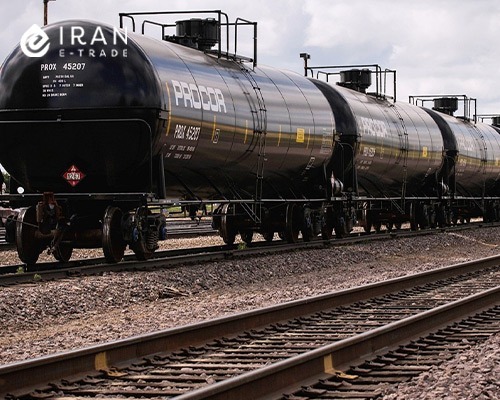
source: en.wikipedia
Bitumen Price
- Oil Refineries in Iran: Complete List + Comparison
- Gasoline Producing Refineries in Iran: 12 Major Refineries
- Largest Oil Producers in the World: The Top 13 Countries...
- The Largest Bitumen Refineries In The World: Top 20 Refineries...
- What Is An Oil Lubricant: Types, Applications + Production
- What Is LPG: Properties + Uses Liquefied Petroleum Gas
